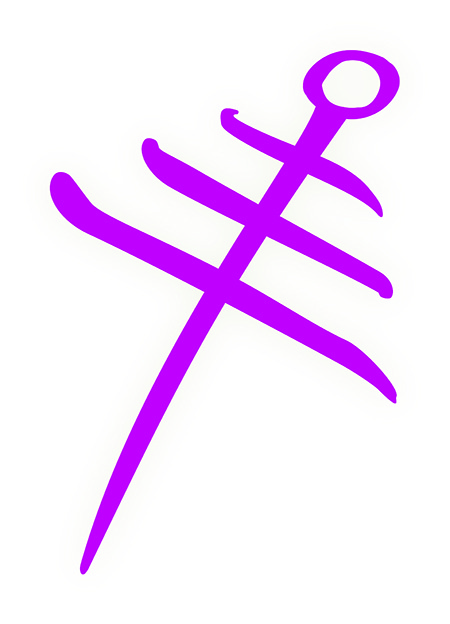The process by which we can attain higher levels of consciousness is actually a process of Tantra. Of course, if you read popular books on Tantra, you will get a very warped idea of what it is. It is therefore necessary to go back to the original meaning of the Sanskrit word Tantra, which is “freedom”. This is why lots of strange acts are associated with Tantra; when you are free, you dare to do things that other people do not dare to do. But when you analyse the Sanskrit word itself, Tan means “to stretch” and Tra is “an instrument or tool”. So the scholastic meaning of the word Tantra is “freedom” and the spiritual meaning is an “instrument by which you can stretch yourself ”.
So Tantra refers to activities that cause you to stretch yourself. Naturally, a lot of people use this idea of stretching yourself and apply it in the strangest ways. In Tantra, there are schools of black magic and witchcraft with all kinds of strange practices. I do not want to discuss individual ways that people practise Tantra, but the general concept behind the meaning of the word, namely, that you have to stretch or expand yourself.
In ancient India, they used the word Tantra to refer to the looms that were used to weave patterns into carpets and cloth. So the concept of Tantra was in the language of the ordinary people as a “tool for weaving new patterns”. On the physical level this means that you weave a pattern into a carpet, for example; on the spiritual level it means you weave new energy forms inside yourself. The idea is quite poetic, actually. You have your basic nature, like a plain cloth or carpet, and with Tantra you weave beautiful patterns into it.
Accordingly, the new pattern that you introduce into your system is the means by which you stretch yourself. If you do not stretch yourself, you remain ever the same. The normal human consciousness is closed and bounded, so most people function in a routine, limited way. They do not practise Tantra; they practise a solidification of consciousness by routine. But if Humanity is like that, Liberation is not possible. That is why the Buddha and the Christ and other Avatāra were such pains in the neck of Humanity. They shook people up, forcing them out of their routines, stretching them beyond their limits (which usually were quite narrow, in any case). These Teachers brought a new velocity of consciousness, a new impulse, new ideas, new methods, and new revelations, and people found all that stretching too hard to bear. That is why they had to put such Teachers to death in one way or another.
If you are not prepared to practise Tantra—to stretch yourself—you will not make progress on the Spiritual Path. Tantra describes a reality, a reality that you must effect in order to attain Enlightenment, the supreme goal of existence. If you do not make an attempt to stretch yourself in whatever way is necessary, how can you reach that goal? In Spiritual Life, therefore, the idea of stretching yourself is the one and only true prerequisite. That is why some people make more progress than others on the Spiritual Path. Now, it is common to think that spiritual progress depends on Karma. But the more basic reality is that some people are prepared to stretch themselves according to the idea of what their spiritual goal is—and some are not.
The two meanings of Tantra—“stretching” and “freedom”—are connected, of course, because you cannot be free from your present limitations unless you stretch yourself beyond them. So you have to step outside yourself, your environment, and your limitations, where you are in terms of space, time and consciousness. One of the most important parts of this process is the breaking down of habits. That is why in some Zen schools pupils are forced to do things they are not used to, and in karate and other hard schools of Zen, pupils are constantly stretched to their limits. They call it Zen but they are actually practising Tantra.
The point is that you practise Tantra within your own existence when you can understand the idea of stretching yourself. This idea is absolutely necessary in order to attain a higher consciousness. We are accustomed to our normal wakeful consciousness, our dream consciousness, and even our dreamless sleep consciousness (which does not register on the physical brain but on the mental body). They are automatic processes and natural. But we are not accustomed to the Fourth Level of Consciousness, which is so powerful that it will literally annihilate us—unless we have stretched ourselves to accommodate it. If a person who has never practised meditation should suddenly awaken to the Fourth Level of Consciousness, he or she would become a jabbering idiot.
In the first level of consciousness you are aware of yourself as a fish in the ocean. In the second level, in the dream state, you are still a fish, but you are seeing a different part of the ocean. And the same applies for the third level. In the Fourth Level of Consciousness, however, you are no longer a fish in the ocean, you are the ocean (although you do not lose your sense of Self completely, for a residue of I am-ness remains, not as an idea but as an inborn quality). That is a major shift in your human consciousness, an awesome experience. And unless you have accustomed yourself to it by stretching yourself so that you can handle the larger reality, you can lose your sense of identity and become unable to deal with the outside world.
This is why the techniques of Yoga are so critical; they prepare you step by step to become gradually accustomed to a higher velocity of Reality. You stretch yourself a little at a time, meditating and having flashes of insight repeatedly. New energy streams are gradually woven inside your system in increasingly complex patterns, expanding your awareness so that, when the full manifestation of the Fourth Level of Consciousness bursts upon you, your system simply accommodates it. Tantric practices were therefore devised to enable people to stretch themselves a little at a time, the idea being to absorb the higher levels of consciousness and be able to function like a normal human being on this planet, to be able to live in that other Reality and at the same time be useful to yourself, to the community, to the environment, to society—to the whole of Creation on all levels.
What goes hand-in-hand with practice and is equally important, however, is the reorganization of your life. People do not like change, however, because the tamasic principle is very strong, especially in the physical body. They get used to a certain situation and they hang onto it, no matter how horrible it is. That is because they do not practise Tantra, stretching themselves. If you read the biographies of Saints—either Eastern or Western—you will realize that one thing that characterizes the life of a Saint is that it was stretched to its limit. Undergoing the most fantastic experiences internally and externally or performing the most incredible disciplines, the Saints had one thing in common. In the totality of their Being they were stretched. There is no way that you will be able to reach Enlightenment by watching your favourite TV programmes all the time.
Tantra is a real principle that will give you insights into yourself and your progress in Spiritual Life. When someone says to me, “I have been meditating for ten years now, and I don’t seem to be getting anywhere”, I reply, “Have you been practising Tantra?” Usually they haven’t. The practice of Tantra is essential; there is little progress made on the Spiritual Path without it. When you introduce a new mantra into your system, a new Light energy emerges within you, and as you practise that mantra, you weave, with that Light energy, a new pattern of consciousness inside you. And that is exactly what will emerge through the practice of Tantra.
Excerpt from The Art of Meditation (Pages 77-81)


I’ve read this a few times already but I keep reading it, it won’t let me go (or I can’t let it go). It’s really brilliant. Thank you!